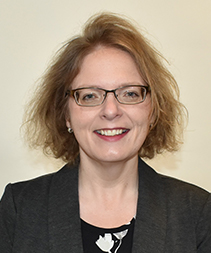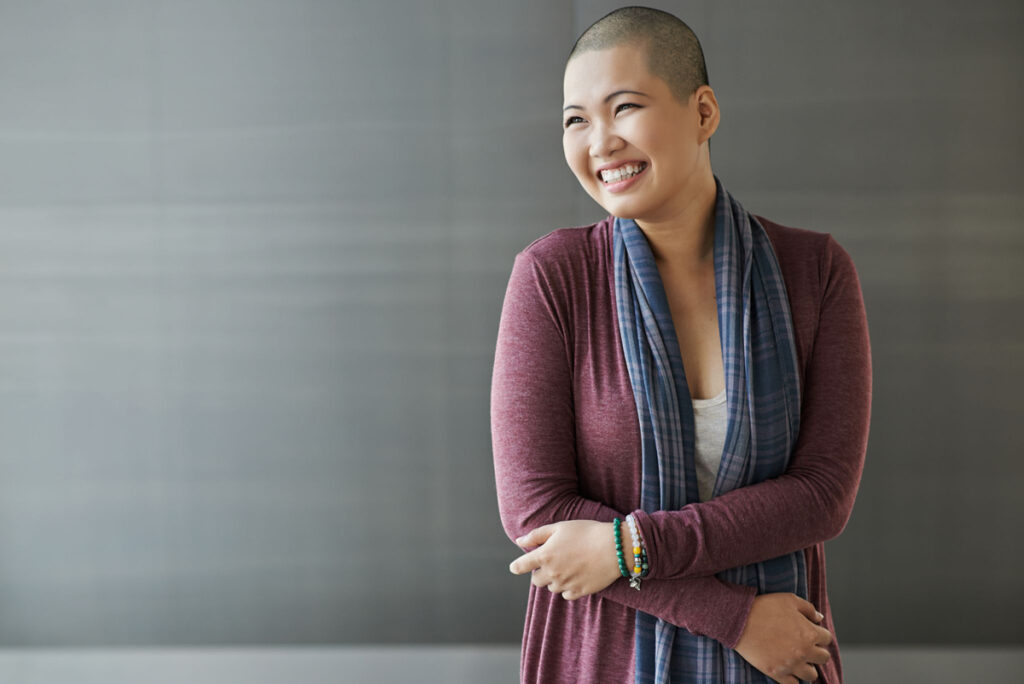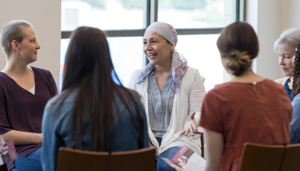Every cancer experience is different, but most would agree that life is different after cancer. With the identity “cancer survivor” often comes both physical and psychological side effects of treatment to manage. Heather Dommer, ARNP, FNP-C, MSN leads the Survivorship Clinic at the Nassif Community Cancer Center, helping cancer survivors navigate this new chapter of their lives.
What is Survivorship Support?
Survivorship support exists to help our patients who have completed treatment receive the support and prevention services they need to transition into their new normal routine. It addresses short-, long- and late-term side effects of treatment.
Why Would a Patient Need Survivorship Support?
I think of it as a bridge for those in-between treatment and normal life. It’s a difficult time for patients as many face side effects such as weight loss, sexual dysfunction, surgical scars, fatigue, cognitive dysfunction, guilt, relationship struggles, and uncertainty about the future. The goal is to help patients move beyond cancer and embrace wellness for life.
What Does Survivorship Support at the Community Cancer Center Entail?
There are three distinct phases we take patients through at the survivorship clinic:
- Survivorship care plan. We develop survivorship care plans tailored specifically for each patient. A patient’s care plan will include an explanation of their diagnosis and treatment – something that comes in handy in the future to reference and they feel less pressured to remember every detail of their treatment. The plan also includes information on their follow-up care.
- Follow-up care. We establish individualized follow-up care. I educate patients on signs or symptoms of cancer recurrence as well as side effects of treatment that may occur later on. We also review preventative cancer screenings the patient should receive moving forward. As a patient moves further along in survivorship, some may stop seeing their oncologist and will visit the Community Cancer Center for long-term follow up care.
- Health and wellness. We discuss side effects the patient is experiencing such as pain, difficulty sleeping or other symptoms after treatment and help provide ways to manage those symptoms. There are many resources at the Community Cancer Center available to our patients – whether they completed treatment a month ago or ten years ago. Every experience is unique, but I often refer patients to the Community Cancer Center’s dietitian, exercise specialist and integrative wellness approaches such as medical acupuncture, massage and aromatherapy. Staying on top of your health is a critical component of survivorship and we help patients do just that.
What advice do you have for cancer survivors who are moving on from cancer treatment?
Fear and anxiety of recurrence is very common among cancer survivors. My advice is to maintain open and ongoing communication about your feelings; whether it’s with your medical provider or friends and family.
For more information on the Survivorship Clinic at the Community Cancer Center, click here or call (319) 558-4876.

Heather Dommer
ARNP, FNP-C, MSN
Heather earned her bachelor’s in nursing from Mount Mercy College in Cedar Rapids, and her master’s in nursing from Allen College in Waterloo. Heather is board certified by the American Academy of Nurse Practitioners.
“The best part [of my job] is seeing someone come in scared and concerned and leave with a smile on their face, feeling supported.”







